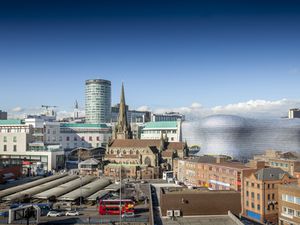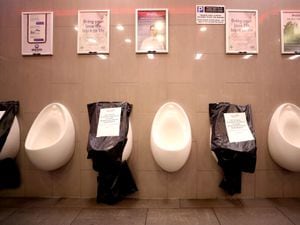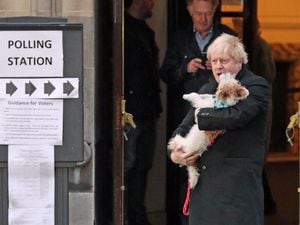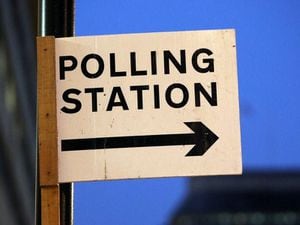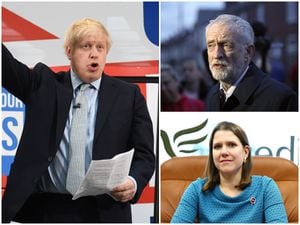Nigel Hastilow: Rising fares and the trouble with trains
A new railway timetable shouldn’t automatically lead to chaos, but is anyone surprised when it does?
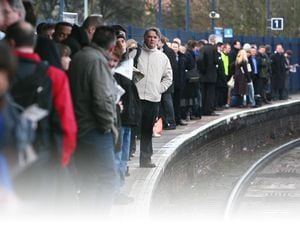
Thousands of services have been delayed or cancelled up and down the country as the railway companies went for a ‘big bang’ approach to new timetables.
It left passengers fuming and frustrated. But that’s nothing new, really, because our privatised railways are so much ‘victims of their own success’ they are used to angry customers.
We’re using the railways more often, which some people claim shows the success of the way our railways are run – private businesses owning franchises to operate trains over a nationalised network.
Actually it’s because of long-distance commuting and a clogged road network which mean we don’t have any choice no matter how expensive or confusing the fares may be.
The truth is the railways are a bit of a failure. That’s why Richard Branson’s Virgin and its partner Stagecoach have run away from the East Coast main line.
They can’t make any money out of it and, instead of forcing them to abide by their contract, even at a loss, the Government lets them off the hook and renationalises the line.
This is a great scam for the train operators – make money and you’re laughing all the way to the bank, make a loss and you can ditch your responsibilities.
We call it privatisation but the railways are still publicly owned and massively subsidised by the taxpayer. On average, every passenger costs the taxpayer 8p per mile, making the total cost £4.2 billion a year.
We pretend handing responsibility to commercial, profit-making organisations means the system is cheaper than if it remained in State hands. And we believe the private sector is more efficient, provides better value for money and lays on an improved service for its customers.
Yet the railways are not cheap or efficient.
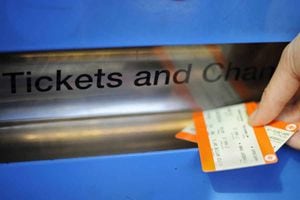
In the years before British Rail was privatised, the taxpayer spent less than £1 billion on the railways in 1988 and as much as £3.5 billion in 1992 as it was being fattened up for (in both cases these are at 2018 prices).
Since privatisation in 1994, the subsidies have soared. They reached almost £8 billion in 2007 and the sums have been well up on British Rail levels ever since.
At the same time, it is hard to believe trains are more efficient or customer-friendly than in the past.
Fares have more than doubled since privatisation and, while there is new rolling stock, there’s not enough of it and some, like Virgin’s West Coast mainline trains, are positively insanitary.
It’s not all bad. Most trains are more comfortable, they tend to run on time and you can always get your money back if your journey is unusually hideous and you can face the bureaucracy involved.
The truth is, though, that our railways are not run by the private sector or by the State but by some infernal combination of the two which doesn’t really suit anyone.
The infrastructure – stations, track, signals and so on – are still in the Government’s hands. The services are run by a confusing collection of companies, mainly foreign-owned (the French and Spanish have just won the right to run trains in Wales), which take our money and walk away if it starts looking a bit too expensive.
The obvious answer is to renationalise the whole thing. After all, it was never privatised in the first place. If we went for a true private-sector solution, fares would soar further while investment in new lines would disappear. For instance, the private sector would never in a million years embark on the financial bottomless pit that is the HS2 line linking London to civilisation.
There is no financial case for this extravagance. Only a Government would ever think it was a good idea.
The problem is that to break even, a railway must either charge passengers a great deal of money or rely heavily on taxpayer subsidies. And there doesn’t seem to be any way round that dilemma.
The solution rejected when the railways were first part-privatised was a system where a company was responsible for both the trains and the track – as they where when the ‘big four’ were nationalised in 1948.
It would not reduce the need for subsidies but if we had four, or maybe more, railway companies each responsible for an easily-identifiable chunk of the network we could compare them with one another and discover which were truly efficient and which were milking the system.
The Government has accidentally gone a short way down that track by declaring the East Coast line will now be known as the London and North Eastern Railway as it was before nationalisation.
Bring back the Southern, Great Western and London Midland & Scottish and you have the whole set. Only problem is if they hadn’t been nationalised all those years ago, they’d probably have gone bankrupt.
That’s the trouble with trains – they’ve never really been financially viable.

